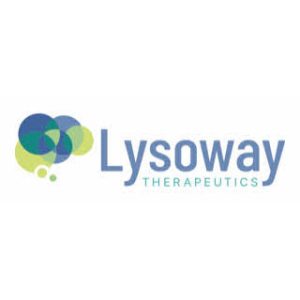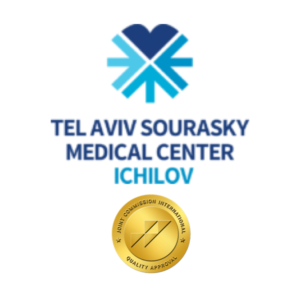
Silverstein Foundation Initiatives
Since our formation in March, 2017, we have made 39 research grants, both independently and in partnership with other foundations, and established important collaborative relationships within the pharmaceutical and biotechnology industries. The strength of our cumulative research program stems from our multi-faceted strategy, funding grants in a wide variety of approaches including:
- Lysomal ion channel biology
- CRISPR gene editing
- Alpha-synuclein disaggregators
- Autophagy
- Mitophagy
- Antisense oligonucleotides
- Gene therapy
- Alpha synuclein degraders
- Glucocerebrosidase activators
- Substrate reduction therapy
- Autologous induced pluripotent stem cells
- Deep Brain Stimulation Medical Devices
2024
June 2024
- The first annual GBA1 meeting was held at the Montreal Neurological Institute. It was a groundbreaking international gathering focused on advancing research into the GBA1 gene and its role in Parkinson’s disease. Hosted at The Neuro at McGill University, the event brought together leading researchers, clinicians, and industry experts to share cutting-edge findings, foster collaboration, and explore therapeutic innovations. The Silverstein Foundation was one of the sponsors, the conference highlighted new insights into GBA1-associated neurodegeneration.
December 2024
2023
July 2023
- The launch of the Silverstein Foundation Post-Doctoral Fellowship Program. The Silverstein Foundation announced the creation of a two-year, post-doctoral fellowship program that will fund scientists engaged in cutting-edge research on GBA-PD in eleven different academic and hospital-based laboratories around the world. These institutions include Brigham and Women’s Hospital, Hamad Bin Khalifa University. Montreal Neurological Institute-Hospital (The Neuro), Mount Sinai Health System, Northwestern University, University of Oxford, Stanford University, Tel Aviv Sourasky Medical Center, The Ottawa Hospital Institute, and the University of Maryland Medical Center. We have already hosted two meetings of the Silverstein Fellows (see photo above), and collaborative efforts involving these researchers have already begun. We are hopeful that the collective learning and connection fostered by the Fellowship Program will accelerate movement toward a cure for GBA-PD.
December 2023
- Vanqua Bio, a company that was developed with research originally funded by The Silverstein Foundation in the lab of Dimitri Krainc at Northwestern, made an exciting announcement. Its development candidate, VQ-101, a best-in-class brain-penetrant small molecule allosteric activator of glucocerebrosidase (GCase), will enter clinical development in the first half of 2024, with an initial indication in Parkinson’s disease.
2022
December 2022
- A grant was made to CuraSen Therapeutics, a company focused on the development of new treatments for neurodegenerative diseases. CuraSen’s drugs are designed to activate certain receptor populations in the brain to compensate for critical neuronal and glial functions that have otherwise been lost. The Phase 2 clinical trials will enroll patients with mild cognitive impairment or mild dementia due to either PD (with rapid eye movement sleep behavior disorder, PDRBD) or Alzheimer’s disease.
November 2022
- Lysoway Therapeutics is a start-up biotech company and leader in lysosomal ion channel disease biology, with unique technological approaches to screen and develop potent modulators of lysosomal ion channels, including TRPML1 and TMEM175. Lysoway’s ion channel modulators have great potential to re-balance lysosomal function and autophagy to treat neurodegenerative diseases with lysosomal deficiency, including Parkinson’s disease. Lysoway plans to use the grant from Silverstein Foundation to investigate the therapeutic potential of its channel modulators in preclinical models of GBA-deficient Parkinson’s disease, particularly focusing on discovery and development of target engagement and pharmacodynamic biomarkers. The support from the Foundation, which underlines the importance of lysosomal ion channels as drug targets for Parkinson’s disease, will help expedite the overall translational research effort.
March 2022
- The New York Stem Cell Foundation (NYSCF) Research Institute received funding from The Silverstein Foundation to generate and study stem cell models of Parkinson’s disease from patients who carry a GBA mutation. NYSCF scientists will create induced pluripotent stem cell lines from a cohort of these patients, use CRISPR gene editing to repair the GBA mutations, and convert both patient and gene-corrected stem cells into neurons to allow studies of how the mutation affects patient cells. To discover entirely new features of GBA Parkinson’s disease, NYSCF will also apply high-content imaging and artificial intelligence algorithms to define what makes patient cells unique and pave the way for drug discovery.
January 2022
- The Silverstein Foundation is proud to be a funding partner with the Michael J. Fox Foundation supporting a follow-on study of a drug (anle138b) from German biotech company MODAG. The goal of this small molecule, initially targeting multiple system atrophy (MSA), is to stop the Parkinson’s protein alpha-synuclein (A-SYN) from clumping together. Scientists believe the aggregation of A-SYN is toxic to brain cells. This funding for the expansion of a Phase 1B clinical trial in a new indication, Parkinson’s Disease, will further explore dosing strategies for future studies and the development of diagnostic tools, including a PET tracer.
2021
October 2021
- The Silverstein Foundation provided a grant to Professor Hagai Bergman, MD, DSc, at the Hebrew University of Jerusalem and the Hadassah Medical Center, in support of his research around the use of Deep Brain Stimulation (DBS) in GBA PD patients. The primary goal of the study is to find a biomarker that will predict the clinical outcome of DBS for GBA-PD patients. The secondary goal is to optimize DBS procedures for GBA (and other) PD patients.
August 2021
- AcureX Therapeutics received funding to support the development of novel, first in class, small molecule drug candidates for the treatment of Parkinson’s disease. AcureX has discovered proprietary targets and drugs that reactivate mitophagy in PD patients by stopping improper signaling to the mitochondrial protein Miro1. AcureX is advancing this new class of therapeutics as potentially disease-modifying therapies for the treatment of PD.
2020
December 2020
- Vanqua Bio, which was launched in late 2019, received two additional grants in support of its research in developing small molecule modulators of lysosomal targets that have genetic linkages to GBA PD. The science behind Vanqua is based on Foundation-funded research being conducted in the laboratory of Dr. Dimitri Krainc at Northwestern University.
December 2020
2019
September 2019
- The Silverstein Foundation, along with Q-State Biosciences launched Chamishi Therapeutics, a drug discovery and development company focused on neurodegenerative diseases and other related disorders. Chamishi will initially focus on developing antisense oligonucleotide (ASO) therapies for Glucosylceramidase Beta Acid (GBA)-Parkinson’s disease
June 2019
- Prevail Therapeutics Inc. (Prevail), a gene therapy company co-founded by The Silverstein Foundation which is developing AAV-based gene therapies for patients with neurodegenerative diseases, announced the U.S. Food and Drug Administration (FDA) has accepted the Company’s Investigational New Drug (IND) application for its lead gene therapy program, PR001. PR001 is a potentially disease-modifying, single-dose, AAV9-based gene therapy being developed for the treatment of Parkinson’s disease patients with a GBA1 mutation (PD-GBA). On June 19th, Prevail announced the pricing of its initial public offering of 7,353,000 shares of its common stock at a price to the public of
$17.00 per share, and members of the Prevail team, along with Silverstein Foundation founder Jonathan Silverstein, rang the opening bell of the NASDAQ.
January 2019
- A grant was made to Dr. Jeanne Loring at Aspen Neuroscience in support of her work in the use of “living cells”, patient-specific cells from induced pluripotent stem cells to treat disease. In addition to her work in idiopathic Parkinson’s, she will also use this grant to focus on Parkinson’s with GBA.
January 2019
- E-scape Bio, a 2019 grantee, is pursuing Parkinson’s Disease using small molecule agonists.
January 2019
- A grant was made to Q–State Biosciences, a global leader in antisense oligonucleotide (ASO) research to design ASOs that prevent production of toxic proteins or rescue expression of a protein to yield a beneficial effect.
2018
December 2018
- Our joint workshop with the Michael J. Fox Foundation for Parkinson’s Research (MJFF) in March was a huge success and led to an exciting partnership between MJFF and The Silverstein Foundation – a joint RFA making more than $3 million in research funding available to expand the understanding of the GBA gene in Parkinson’s Disease and to accelerate novel therapeutic development. The program aims to advance understanding of the pathophysiological cellular mechanisms triggered by GBA1 mutations, and to promote the development and testing of novel therapeutic approaches. We are delighted to report that an astonishing 92 proposals were received from around the globe, and we will be funding up to 20 of these. Please click the link below for more details.
March 2018
- A grant was made to Dr. Craig Crews in the Crews Laboratory at Yale University. Protein aggregation has long been known to be a hallmark of Parkinson’s Disease. In particular, some forms of the alpha-synuclein protein associate into insoluble protein aggregates and correlate with PD. The Crews Lab is exploring new technologies to engage the normal cellular quality control machinery to recognize and dispose of aggregated alpha-synuclein protein. The ultimate goal is to demonstrate that pharmaceutical clearance of these disease-associated aggregates can halt PD progression.
March 2018
- A grant was made to Arvinas, a biotech company in Connecticut whose technology will focus on degrading toxic intracellular targets found in Parkinson’s Disease.
January 2018
- A grant was made to resTORbio to target the selective inhibition of TORC1.
2017
November 2017
- A grant was made to Dr. Dimitri Krainc, Chairman of Neurology at Northwestern University. Dr. Krainc is a global thought leader in GBA-Parkinson’s Disease biology and is the scientific founder of Lysosomal Therapeutics. The Foundation is funding the development of next-generation glucocerebrosidase activators at Northwestern, and has an exclusive option to jointly start a company to bring these drugs to market.
September 2017
- Two grants were made to Alector, a Calfornia-based biotechnology company developing novel immuno-neurology therapies. Our grants will support animal work, testing these therapies in Parkinson’s Disease models.
August 2017
- A grant was made to Columbia University which was directed specifically to GBA-related research.
- A grant was made to Columbia University which was directed specifically to GBA-focused bioinformatics in search of new targets for our research.
July 2017
- Prevail Therapeutics was launched by The Silverstein Foundation, Dr. Asa Abeliovich, REGENXBIO and OrbiMed. The company is focused on developing novel biologic therapies for Parkinson’s Disease and other neurodegenerative diseases. Prevail entered an exclusive worldwide license agreement with REGENXBIO to develop and commercialize certain gene therapy products using REGENXBIO’s proprietary gene therapy technology, NAV AAV vectors.
March 2017
- A grant was made to the Michael J. Fox Foundation for Parkinson’s Research directed specifically to GBA-related research.
March 2017
- A grant was made to the Parkinson’s Institute and Clinical Center in San Francisco to allow then Executive Director, Dr. Carrolee Barlow and her team to complete a study of the clinical manifestations of genetic (GBA, LRRK2, etc.) as compared to sporadic Parkinsons, specifically as it relates to neurons in the GI tract. Data from this study can be used by pharmaceutical companies to design and quickly advance novel clinical models.















